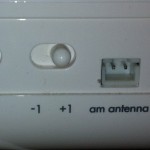Yes, like so many on the internet, I’m a fan of Arrested Development – the cult-comedy that was “too smart for TV” – and I’m excited to see it return for a new season. Beyond the regular reasons to celebrate the long-awaited fourth season, I’m excited for professional reasons as well. For Netflix’s newest foray into original programming, they’re starting to tackle what Netflix-native shows could look like.
Netflix’s House of Cards, while being splendidly executed and undeniably fantastic television, didn’t stray far from the structure and feel of any other critic-lauded premium cable drama. Its hour-long structure and 13 episode order on the face of it look a lot like The Wire. Sure, Netflix had some additional ‘big data’ to inform their decisions that HBO might not have had. And, just like what Moneyball and Sabermetrics did for baseball, I’m sure big data will have increasingly sophisticated ripples as more content buyers and creators begin to explore the potential and pitfalls there.
Netflix did make a large (and heavily promoted) departure from premium cable dramas by releasing the full House of Cards season all at once. They plan to do the same with Arrested Development. Other than the marketing angle of getting a storm of press about ‘binge watching,’ House of Cards didn’t really capitalize on this new method of premiering a show or of the unique opportunities of a web based platform.
As the earliest hypertext fiction creators will attest, the web is all about non-linear storytelling. Video forces a certain amount of linearity – but on the web, even that’s pretty narrow. Watch a friend browse YouTube for a while. After one video is complete – or even while it’s happening – there are so many branching paths: links embedded within the video, related videos curated by the YouTube algorithm, other videos by the same creator, the video description, comments, etc.
Unlike House of Cards, Arrested Development will play with some non-linear storytelling. From a recent Wired article:
Each episode will cover events from a different character’s point of view, like a comedic Rashomon. There will be moments and Easter eggs that will make sense only in retrospect. There will be a suggested viewing sequence, but it will be possible—even rewarding—to watch out of sequence.
That there’s a ‘suggested sequence’ implies that Netflix won’t be rolling out a new interface to go along with this new narrative format. That viewers won’t be guided towards their own personal viewing order – think Netflix’s recommendation engine crossed with YouTube’s branching videos – feels like a bit of a letdown. It’s possible that the new code and structural changes required were too much of gamble. Or, it could be that this screenwriting experiment worked, but just wasn’t ready to stand up to being fully non-linear. Or, maybe Netflix will surprise us and in a month all my peevishness will seem throughly misplaced.
Still, I’m excited because:
It’s something new—a collection of episodes released altogether that can be remixed and recombined and that gain something from each juxtaposition.
I’m so excited, I made a little fan-tribute. I give you my Arrested Development Tropes Bingo Card Generator. Without looking at anything spoiler-y, I put together a quick selection of tropes that may return in season four. It’s probably also fun for those doing a watch/re-watch before the premier later in May.

